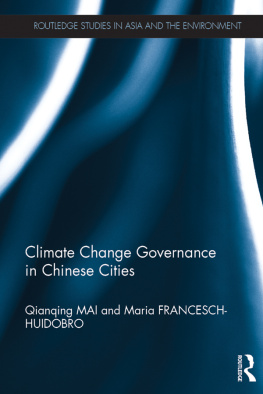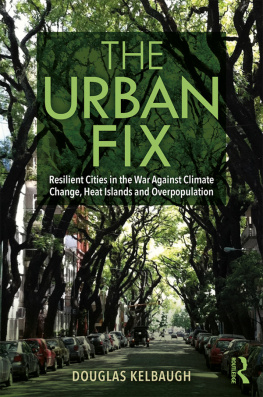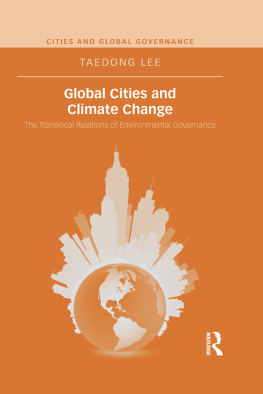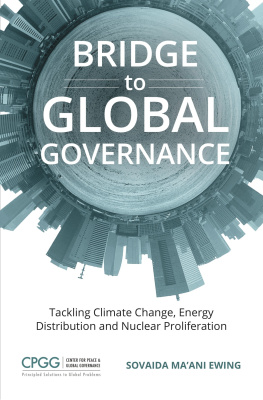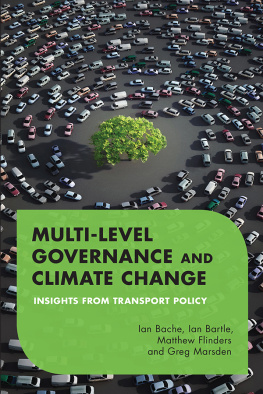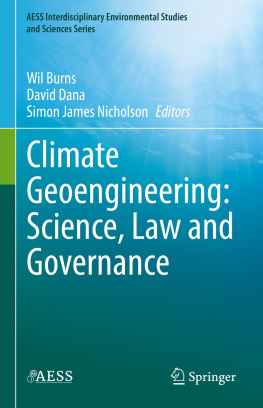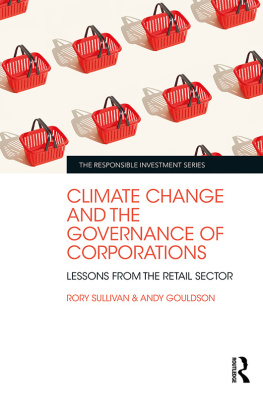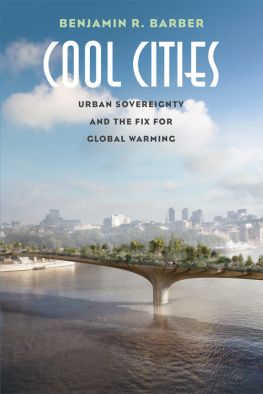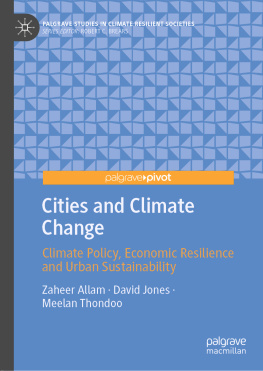This book is timely and compelling in addressing alignments of governance and climate change mitigation in the urban environment in China. [] The analysis as a whole, with arenas appreciated and in depth city assessments addressing contexts, dynamics and challenges in sectors so pertinent to climate change mitigation, neatly threads together theory and practice in making sense of urban environmental governance. In doing so, it is to be commended as adding considerably to a vital and ever expanding body of literature and knowledge.
Ian Thynne, Australian National University and University of Hong Kong
The two authors make a serious scholarly and inspiring effort to advance the theoretical frontier and enrich knowledge by examining this quickly emerging topic of environmental protection in China from a governance perspective. their study has effectively achieved the objective of advancing a proper understanding of the governance dynamics and challenges of urban climate mitigation in Chinese cities, making an important contribution to the theoretical inquiry of environmental governance. This book will inspire further theoretical and empirical research efforts on climate change governance in general and in China in particular.
Carlos Wing-Hung Lo, The Hong Kong Polytechnic University
Climate Change Governance in Chinese Cities
In the last thirty years, China has experienced rapid economic development and urbanisation, which has resulted in high levels of environmental degradation and has put considerable pressure on the countrys infrastructure and natural resources. As China commits to considerably lower the carbon intensity of its economy, this volume analyses and explains the governance of climate change mitigation responses in major Chinese cities.
The book focuses specifically on two highly carbon intensive sectors, buildings and transport, in Guangzhou, Shenzhen and Hong Kong to explore how collaborative municipal networks function in practice in Chinese cities. The authors find that effective coordination relies on the political will of local administrative elites, the political significance attached to climate change issues, the legitimate authority granted to the coordinating agency, and human and financial capitals. Collaboration is hampered by limited span of network engagement, inadequate authority of the primary network participants, insufficient input and output legitimacy of the sectoral innovations, and missing linkages across functionally segregated sectors. The book concludes that the enhanced collaboration and coordination between networks that has emerged in the process of low carbon transitions is transforming the Chinese environmental state into a more pluralistic, inclusive and legitimate one.
This book will be of interest to researchers and practitioners across disciplines including Chinese studies, environmental politics and policy, urban studies, and planning and geography.
Qianqing Mai is a Researcher in the Department of Public Policy, City University of Hong Kong.
Maria Francesch-Huidobro is Assistant Professor, Department of Public Policy, City University of Hong Kong, and Honorary Assistant Professor of the Kadoorie Institute, The University of Hong Kong.
Routledge studies in Asia and the environment
The role of Asia will be crucial in tackling the worlds environmental problems. The primary aim of this series is to publish original, high quality, research level work by scholars in both the East and the West on all aspects of Asia and the environment. The series aims to cover all aspects of environmental issues, including how they relate to economic development, sustainability, technology, society and government policies, and to include all regions of Asia.
1 Climate Change Governance in Chinese Cities
Qianqing Mai and Maria Francesch-Huidobro
Upcoming titles:
2 Deliberating Environmental Policy in India
Participation and the Role of Advocacy
Sunayana Ganguly
3 Sustainability in Contemporary Rural Japan
Challenges and Opportunities
Edited by Stephanie Assmann
4 Borneo and the Environment
Challenges and Change
Peter Eaton and Mark Cleary
First published 2015
by Routledge
2 Park Square, Milton Park, Abingdon, Oxon, OX14 4RN
and by Routledge
711 Third Avenue, New York, NY 10017
Routledge is an imprint of the Taylor & Francis Group, an informa business
2015 Qianqing Mai and Maria Francesch-Huidobro
The right of Qianqing Mai and Maria Francesch-Huidobro to be identified as authors of this work has been asserted by them in accordance with sections 77 and 78 of the Copyright, Designs and Patents Act 1988.
All rights reserved. No part of this book may be reprinted or reproduced or utilised in any form or by any electronic, mechanical, or other means, now known or hereafter invented, including photocopying and recording, or in any information storage or retrieval system, without permission in writing from the publishers.
Trademark notice: Product or corporate names may be trademarks or registered trademarks, and are used only for identification and explanation without intent to infringe.
British Library Cataloguing in Publication Data
A catalogue record for this book is available from the British Library
Library of Congress Cataloging-in-Publication Data
Mai, Qianqinq.
Climate change governance in Chinese cities / Qianqinq Mai and Maria
Francesch-Huidobro.
pages cm. (Routledge studies in Asia and the environment)
Includes bibliographical references and index.
1. Climatic changesGovernment policyChina. 2. Climatic
changesChina. 3. Climate change mitigationChina. I. Francesch
Huidobro, Maria. II. Title.
QC903.2.C5M35 2015
363.73874560951dc23
2014022353
ISBN: 978-1-138-78542-7 (hbk)
ISBN: 978-1-315-76778-9 (ebk)
Typeset in Times New Roman
by Apex CoVantage, LLC
The study of environmental governance in China is both discouraging and inspiring. Discouragement comes from the growing pain of observing that the dominant ideology in Chinese governments at both the Central and local levels manifests the persisting conflicts between environmental protection and economic growth under the national strategy of pursuing sustainable development. Take a glance at the landscape of environmental governance in todays China after decades of the nationwide effort in institution and capacity building for green evolution. Politically, the bureaucratic status of environmental protection authorities continues to be weak vis--vis the commissions and governmental agencies in charge of planning and economic development. Socially, green non-environmental protection organisations remain marginal in the shaping of environmental policies and the cultivation of green communities. Economically, local governments keep on providing polluting businesses with investment opportunities to enable them to achieve their economic priorities. All these combine to constrain effective implementation of pollution control policies and regulations, making it difficult to close the gap between legislative intent and regulatory reality in the environmental legal regime. Looming over this dark side of the picture are that the progressive initiative of introducing the green GDP has been shelved, environmental protection bureaus have been denied active allies to support their environmental regulatory endeavors, and industrial pollution control focus has been limited to securing minimum compliance from polluting enterprises.

